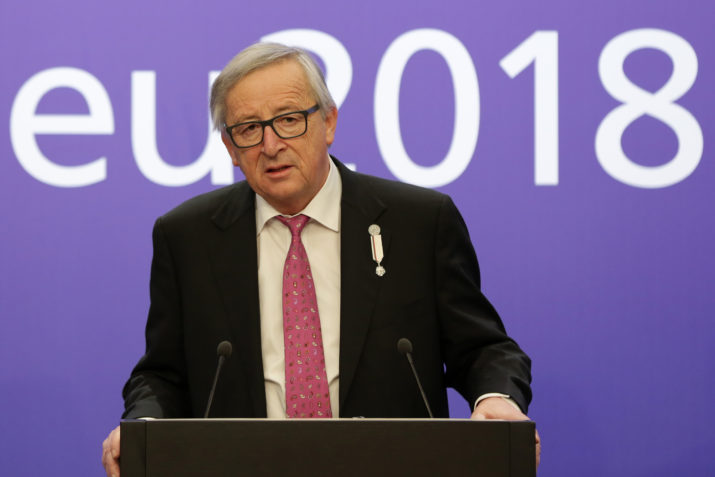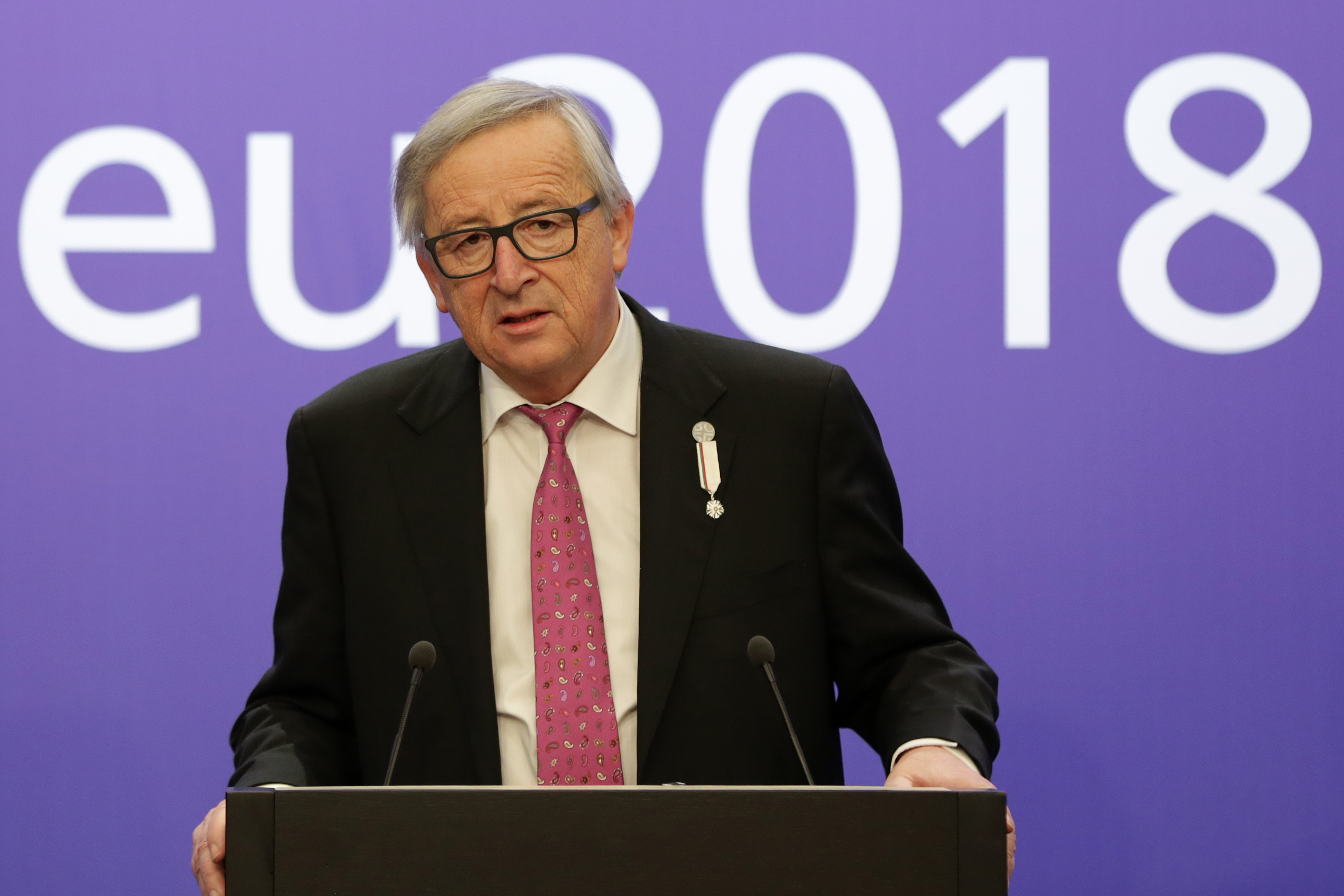

During a conference organized by Friends of Europe in December 2017, Albanian Prime Minister Edi Rama stated:
Russia and China have many things to offer: Russia can give you power energy for the rest of your life if you give up the rule of law. It is not quite uninteresting. China has the luxury of being able to plan for the next 100 years. I would not say they have nothing to offer. And then there is also radical Islam. In our region, we are multiethnic, multi-religious. If the EU will not run to catch us, believe me, many multi-problems can restart and then it will be much more costly to marry with us later.[1]
Everything looked like standard staging, with a leader in distress and a low moan of despair. Within a couple of weeks, the EU strategy document revealed on February 6, 2018 introduced another new geopolitical concept: the Western Balkans Six (WB6), defined in EU discourse as the former Yugoslavia, excluding Slovenia and Croatia, but including Kosovo and Albania. While indicating a differentiated integration policy at sub-regional level, it also contained evidence of a rare type of introspection. The document stated that the EU “must remain credible, firm and fair” in its relations with the six Western Balkan countries “while upgrading its policies to better support the transformation process in the region.”[2] At the end of the same month, the President of the European Commission, Jean-Claude Juncker, embarked on a Western Balkan tour to promote the EU’s new strategy. The message Juncker conveyed was that “accession is not a dream but a reality, a reality that is going to come,” suggesting that the EU wanted to reclaim the WB6 as its own. For years, the EU has envisaged that a time would come, perhaps midway through this century, when the whole Balkan region would be a part of the European Union. At a time of increased presence of Russia, China, and Turkey in the Balkans – all in search of zones of influence, geopolitical gain, or commercial profit – that time has come far sooner than expected, as EU membership is expected to gain perspective by 2025.
Under the assumption that the Western Balkans do not represent an immediate danger to the EU political project and market integration, EU foreign policy towards the region was characterized until 2003 as securitized containment rather than of dedicated enlargement. EU strategy may come to be seen as keeping the region in Europe, but outside of EU structures. EU conditionality over membership in the club, in combination with economic, legal, and financial linkages, comes to be used as a means for immediate problem-solving or distribution of influence of Member States rather than as an end to foster long-term EU institutional relationships with the region.
Fatigued by expansion and challenged by the refugee crisis, Brexit, Catalonian independence, and the aftershocks of the financial crash, the EU project faces major internal challenges, which perhaps should require the EU to revise its policies to make membership more attractive. Combined with the American pursuit of a smaller role in the world under the Trump administration, there is a power vacuum in the Western Balkans, which other emerging regional and international powers are willing to exploit to favor their interests. Until recently, China, Turkey, and Russia avoided challenging Western primacy in the region and supported or abstained from participating in its efforts to settle the region’s affairs. They are now moving closer to center stage. China is landing quietly in the region, following the Chinese approach (zhongguo fang’an), which she offers as an alternative model to Western democracy and “a new option for other countries” to solve their problems[3]. Russia is embracing Pan Slavism and the alleged bond of kinship with the South Slavic states to solidify its presence in the Balkans. Turkey’s geographies of heart (gönül coğrafyası) are taking on cultural activism to legitimize its presence on former Ottoman territories in the Balkans[4]. In turn, Balkan leaders see the current geopolitical challenges as an opportunity, not a problem, and they pledge to tell it like it is, while attempting to manipulate the situation and turn it in their favor by any means available. These recent developments represent a basic challenge to EU assumptions and calculations, which also explain the changes in its attitude.
After the decline of Soviet influence and the shortage of regime alternatives, the EU was the only hegemonic “civic” or “normative” power without competitors in the former communist space. The EU had planted the ideas of a free press and judiciary, human rights, free trade, and protection of the environment in the rebuilding of the Western Balkans. The power of the EU rested mainly on ideas, rather than on military power. Its leverage was very attractive to the Balkan countries, given the EU’s capacity and willingness to enlarge towards the former communist space and support its transition to democracy by rewarding membership in the club. The EU offered possible candidates both a model to follow and the means for a successful transition from communism to democracy. The potential reward of belonging to the club of democratic and developed Western nations made it worth the transition costs; geopolitical challenges increased the perceived cost of reversing those transition policies, since such reversals would raise the risk of being left alone. Western geopolitical leverage in the Balkan context was desirable for the region’s elites, which often found themselves sandwiched between their utter dependence on the West for financial aid and their loyalty to ethno-nationals outside the official borders. Through its purpose and role, the EU promise provided the Balkan states with an acceptable balance between sovereign parity and respect for ethnic minority rights, as well as a suitable balance between the promise of membership and the prospects of peace, economic development and modernization, and the consolidation of democracy.
However, the power of the European Union in the Balkans is linked to the credibility of the EU integration process. Last February, the WB6 strategy of the European Commission aimed to restore this credibility after several abortive attempts. For the EU, enlargement towards WB6 is not only an external policy situation aiming at creating a stable neighborhood. It is mainly an internal, intra-European problem, because much in EU politics depends on the multipolar power balance of Member States (MS) within EU institutional structures, which undermines the enlargement policy, as well as its relevance and effectiveness. It is argued that the EU has the external capacity to prepare WB6 for membership, and the internal institutional capacity to integrate them.[5] This is even more evident if we consider that the Western Balkans collectively could bring only a 3.2 percent increase in the population and 1.3 percent increase of GDP to the EU27. Yet, under the banner of “fatigue,” the conflicts of interest between EU member states are often conveyed as a question of either enlargement or containment, which becomes an object of contention leading to incompatible positions and disruptive practices. To illustrate, let us recall Germany’s premature recognition of Slovenia and Croatia’s secession from Yugoslavia (1991). In the same vein, the resentment over increasing US influence after the Dayton Agreement (1995), South Balkan Development Initiative (1995), and Southeast European Cooperative Initiative (1996), provoked the French Royaumont Process (1995) and encouraged the Germans to initiate the Southeast European Stability Pact (1999). And let’s not forget the recent Berlin Process (2014), which turned into a Balkan Plus process involving other EU member states – such as Austria, France, Italy, and Britain – with interests in the region.
In the view of participants, the process is not reassuring, and this sentiment is described as such: “When we started this process in Berlin, it was a shining, rising sun. Then we went to Vienna. It was a good lunch. Then in Paris was sunset. I don’t know if Trieste will be a full night or will be a new morning. I don’t know.”[6] It is difficult to have thriving results and workable leverage when EU member states are divided, as the big states pursue their own interests and small states block decisions to draw attention to their own concerns. Competition allows for a rambling EU influence consumed by individual MS interests, which keeps the region on the EU agenda, but produces less stringent initiatives that fail to satisfy local actors’ preferences, create demands for reform from below and raise the costs of membership.
In recent years, the world seems to be moving back to its historic multipolarity. From a realist point of view, this is a period in which the uncertain workings of the multipolar balancing process may again bring about a major war for the same reasons as in 1914 and 1939. The situation looks even more complex and brews with instability, considering that the reconfiguration of power is in the making and the redistribution of power may have a bearing upon the actors’ choices of allies.
After the annexation of Crimea by Russia in 2014, the order of things changed in Europe and elsewhere. Ironically, keeping in mind the 1856 Crimean war, it looks as big disruptions always start there. So far, the European Commission’s recent strategy (2018) is looking forward to tackling a plethora of problems in the Western Balkan countries concerning rule of law, security and migration, socio-economic development, transport and energy connectivity, digital agenda, reconciliation and good neighborhood relations, all in the hope it can win political influence in the Balkans. At the same time, the EU is stepping up its efforts on common defense policy and is willing to mobilize €39 billion by 2027 to support the joint development of military capabilities and suggest a NATO-type solidarity clause to respond to cyber-attacks.[7] With the combination of soft and hard power, the EU is trying to compete with a “civilizational challenger” like China,[8] whose ultimate aim is to make Eurasia an economic and trading area to rival the transatlantic one;[9] a “spoiler power” like Russia trying to derail Balkan countries from joining Western institutions;[10] and a “regional power” like Turkey that is significantly stronger than its Balkan neighbors and is looking to translate this strength into influence.[11]
Unlike Russia and Turkey, China’s plans are more ambitious. Besides the projection of its economic power through its ambitious Belt and Road Initiative, it has the potential to overshadow the postwar Marshall reconstruction plan.[12] China is claiming a global leadership role by increasing investment in the types of assets that established EU as a normative power and set US authority for the second part of the last century, including foreign aid, humanitarian interventions, contributing to UN peacekeeping forces, and joining international initiatives to address global problems such as terrorism, piracy, and nuclear proliferation.[13] In the framework of integrating the 16+1 initiative into the platform of the Belt and Road Initiative, China is working full steam on institutionalizing cooperation with each of the Balkan countries. The other issue raising concerns is the question of whether Chinese activities in the region will lead it to buy influence at the political level, which may challenge EU cohesion. Aware of this danger, in August 2017 in Paris, German Foreign Minister Sigmar Gabriel warned that “if we don’t develop a [EU] strategy regarding China, then China will succeed in dividing Europe.”[14] The challenges to the EU project in the Western Balkans are even bigger, at least in the short term, considering Beijing, Moscow, and Ankara’s tacit agreement to sidestep any suggestion of undermining each other’s initiatives with competing projects.
In this situation, it is claimed that the Balkans can easily “become one of the chessboards where the big power game can be played,”[15] and therefore “Bosnia and Herzegovina, Republika Srpska, Macedonia, Albania, all of these countries,” if left to themselves, will cause Europe to “have a war again.”[16] Similar statements fuel growing suspicions in the region that the EU is tied to WB6 only by security concerns and geopolitical reasons. So far, the countries of the region have been prized mainly as dutiful EU partners on the global stage during the migration crisis.[17] The Russian reaction is neither different nor an implausible story. For Sputnik News, the response to a new conflict in the Balkans will be “unlike 1999; NATO won’t get away with bombing a defenseless Belgrade for seventy-eight days, a new generation of Russian missiles would easily prevent it.”[18] Hearing such messages so many times over the last couple of months leaves us uniquely vulnerable to ludicrous conspiracy theories. Let us hope that these remarks could be just a simple political fad to get things moving on deepening the European project and European Defense Union,[19] or simply a part of Putin’s re-election campaign that seeks to make Russian people see him as Russia’s father and the patron saint of the pan-Slavic world. Old and new commentators have portrayed the Balkans as a “powder keg” or “entrapment,” which perpetuates cultural and political boundaries between the West and the Southeast within Europe.[20] As long as these representations prevail, they will continue to support an imagining of the Balkans that justifies EU politics of otherization rather than integration.[21]
Russia, China, and Turkey cannot yet compete with the EU as attractive role models for the countries of the region, as the EU not only remains the main trade partner and the biggest investor in the region, but is also the choice supported by most of Southeast European citizens and elites. However, in a changing international order, the EU must consider moving towards the deep mode of integration and develop mechanisms to anticipate and alleviate any negative consequences of geopolitical developments. Keeping Western Balkan countries tied to a reinvented EU “is a precondition for their not turning their backs on Europe and moving towards either Russia or Turkey, or towards authoritarian powers that do not currently uphold [European] values.”[22] Both sides need not fall for the prisoner’s dilemma, the notorious paradox in game theory in which two parties act out of individual self-interest and both lose out in the process.
Enika Abazi has a Ph.D. in international relations (Bilkent University) and is Director of Paris Peace Research Institute and adjunct professor at the University of Lille (France). She was Director of the Institute for Southeast European Studies (European University Tirana) and research fellow at the Copenhagen Peace Research Institute and Albanian Institute of International Studies. She works on European integration and politics in Southeast Europe, conflicts and interventions after the Cold war, narratives of war and international representations.
Photo: Sofia, Bulgaria – 12 January 2018: European Commission President Jean-Claude Juncker speaks to the media during ceremony starting Bulgaria’s six-month presidency of the European Union.
[1] Edi Rama, “EU must marry Western Balkans quickly to avoid new risks,” Euractiv, 5 December 2017, https://www.euractiv.com/section/enlargement/news/eu-must-marry-western-balkans-quickly-to-avoid-new-risks-albania-pm/.
[2] European Commission, “A credible enlargement perspective for and enhanced EU engagement with the Western Balkans,” 6 February 2018, https://ec.europa.eu/commission/sites/beta-political/files/communication-credible-enlargement-perspective-western-balkans_en.pdf.
[3] Xi Jinping, Report at 19th CPC National Congress (2017).
[4] Ahmet Davutoğlu, The Ottoman Legacy and the Balkans’ Muslim community today (2009).
[5] Tanja A. Börzel, Antoaneta Dimitrova and Frank Schimmelfennig, “European Union enlargement and integration capacity: concepts, findings, and policy implications,” Journal of European Public Policy, Vol. 24, No. 2, 2017.
[6] Matt Robinson, “French, German elections to revive EU expansion, Albanian PM says, Reuters, ” 13 June 2017, https://uk.reuters.com/article/uk-albania-election-eu/french-german-elections-to-revive-eu-expansion-albanian-pm-says-idUKKBN1941ZS
[7] Jorge Valero, “Commission to mobilise €40 billion to beef up defence cooperation,” Euractiv, 7 June 2017, https://www.euractiv.com/section/defence-policy/news/commission-to-mobilise-e40-billion-to-beef-up-defence-cooperation/
[8] Jens Bastian, “The potential for growth through Chinese infrastructure investments in Central and South-Eastern Europe along the ‘Balkan Silk Road,’” European Bank for Construction and Development, July 2017, www.ebrd.com/documents/policy/the-balkan-silk-road.pdf.
[9] The Economist, “What is China’s belt and road initiative? The many motivations behind Xi Jinping’s key foreign policy,” 15 May 2017.
[10] John Cappello, “Russia escalates disinformation campaign in Western Balkans,” Foundation for Defense of Democracies, 05 April 2017, http://www.defenddemocracy.org/media-hit/john-cappello-russia-escalates-disinformation-campaign-in-western-balkans/.
[11] Darko Janjevic, “Erdogan wants Balkans as ‘leverage’ on Europe,” Deutsche Welle, 18 March 2017, www.dw.com/en/erdogan-wants-balkans-as-leverage-on-europe-expert/a-38009794. and Karolos Gadis, “Turkey’s destabilizing role in the Balkans and South East Mediterranean area,” Hellenic News, 28 January 2018, https://hellenicnews.com/turkeys-destabilizing-role-balkans-south-east-mediterranean-area/.
[12] The Economist, “What is China’s belt and road initiative? The many motivations behind Xi Jinping’s key foreign policy,” 15 May 2017, https://www.economist.com/blogs/economist-explains/2017/05/economist-explains-11.
[13] Evan Osnos, “Making China great again. As Donald Trump surrenders America’s global commitments, Xi Jinping is learning to pick up the pieces,” The New Yorker, 8 January 2018, https://www.newyorker.com/magazine/2018/01/08/making-china-great-again.
[14] South China Morning Post, “Merkel warns against China’s influence in Balkans,” 22 February 2018, http://www.scmp.com/news/china/diplomacy-defence/article/2134196/merkel-warns-against-chinas-influence-balkans.
[15] Federica Mogherini, “Remarks by the High Representative/Vice-President Federica Mogherini following the Foreign Affairs Council,” 6 March 2017, https://eeas.europa.eu/headquarters/headquarters-homepage/22056/remarks-high-representativevice-president-federica-mogherini-following-foreign-affairs-council_ru.
[16] Vincent Wood, “EU nightmare: Albania threatens Brussels ‘give us membership or prepare for chaos’,” Express, 18 April 2017, https://www.express.co.uk/news/world/793091/EU-Albania-membership-war-European-Union-Balkans-free-movement-Edi-Rama.
[17] European Commission, “A credible enlargement perspective for and enhanced EU engagement with the Western Balkans,” 6 February 2018, https://ec.europa.eu/commission/sites/beta-political/files/communication-credible-enlargement-perspective-western-balkans_en.pdf.
[18] Pepe Escobar, “Jihad 2.0: the making of the next nightmare,” Sputnik news, 31 Mai 2017, https://sputniknews.com/columnists/201705311054159721-jihad-balkans-next-nightmare/.
[19] Daniel Mützel, “European Defence Union: The return of hard power,” Euractiv, 30 November 2016, https://www.euractiv.com/section/security/news/european-defence-union-the-return-of-hard-power/.
[20] Lene Hansen, “Past as preface: Civilizational politics and the ‘Third’ Balkan War,” Journal of Peace Research Vol 37, No. 3, 2000.
[21] Enika Abazi and Albert Doja, “International representations of Balkan wars: a socio-anthropological account in international relations perspective,” Cambridge Review of International Affairs, Vol. 29, No. 2, 2016.
[22] Emmanuel Macron, “Initiative pour l’Europe: Une Europe souveraine, unie, démocratique,” 26 September 2017, http://www.elysee.fr/declarations/article/initiative-pour-l-europe-discours-d-emmanuel-macron-pour-une-europe-souveraine-unie-democratique/.
Published on June 25, 2018.




